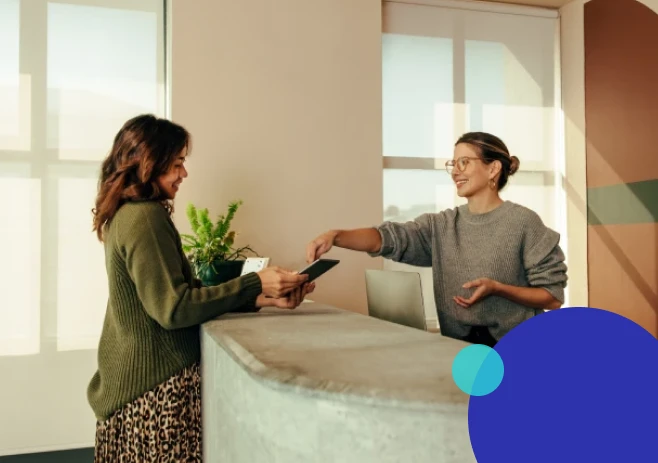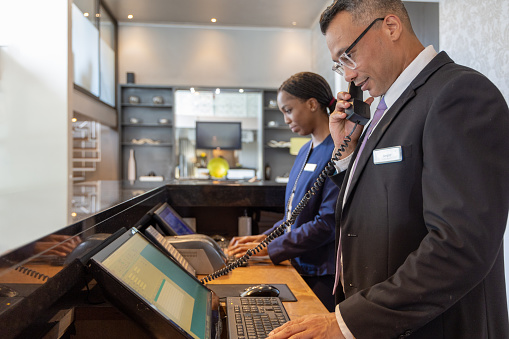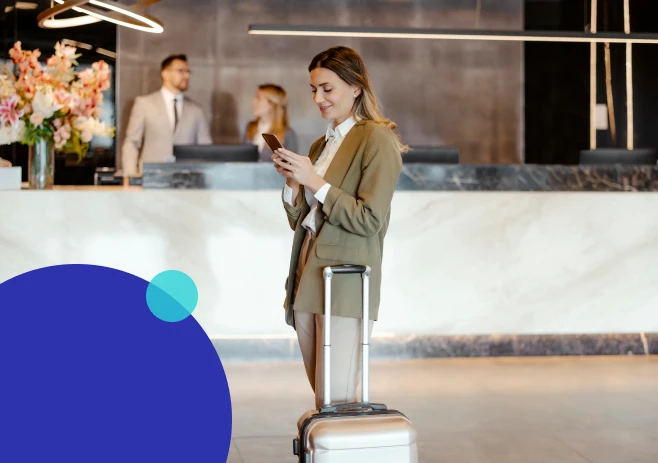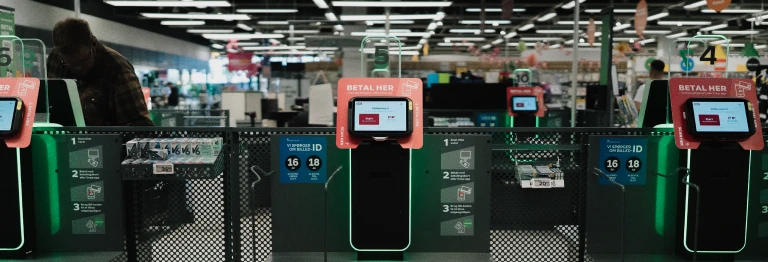
Dopo aver respinto diverse crisi con la forza della creatività e del duro lavoro, il settore alberghiero sta entrando in un territorio senza precedenti. In questa nuova era digitalizzata, i viaggi stanno aumentando, ma l'incertezza economica incombe sullo sfondo. Scoprite come lo slancio digitale può aiutare gli hotel a uscire vincenti.
Negli ultimi due anni gli hotel hanno vissuto un'altalena di ricavi. Dopo un profondo crollo, il 2022 ha registrato una crescita a tre cifre. Nel 2024, i viaggiatori continuano a visitare le belle città e i luoghi d'interesse dell'Europa. Tuttavia, la rinascita avviene in un contesto di fluttuazione economica che presenta ostacoli e opportunità per gli hotel.
Come ogni commerciante di hotel sa, la necessità è la madre dell'invenzione. Con creatività e duro lavoro, gli hotel hanno imparato a gestire anche le crisi più imprevedibili.
Secondo Simon Buchwaldt-Nissen, SVP, Head of Hospitality di Nexi, una delle lezioni più importanti apprese è che il successo si ottiene sfruttando la potenza della tecnologia:
"Nell'era della crescente digitalizzazione, gli hotel si trovano in un campo di battaglia digitale che si sta intensificando. Oggi c'è un'innegabile pressione sugli hotel affinché vadano oltre le norme tradizionali dell'ospitalità, spingendoli a creare esperienze più personalizzate e memorabili per ogni ospite. Questo cambiamento non si limita a rimanere rilevanti; si tratta di ridefinire l'essenza dell'ospitalità nell'era digitale".

Adattarsi alle fluttuazioni economiche
Nel 2023, la crescita complessiva degli hotel è stata diversa da Paese a Paese, dopo un 2022 super-forte. Ma gli arrivi di turisti stranieri in Europa sono stati solo dell'1,6% inferiori ai dati del 2019 nell'ultimo trimestre del 2023, secondo un rapporto della European Travel Commission (ETC). Gli arrivi cinesi in Europa, tuttavia, hanno mostrato una moderata ripresa nel 2023, attestandosi al 67% al di sotto dei livelli del 2019. Tuttavia, secondo gli approfondimenti di Nexi per alcune zone del Nord Europa, la spesa dei cinesi negli hotel è aumentata notevolmente nel 2023, quindi la ripresa è certa. I turisti americani sono stati comunque il gruppo più numeroso di ospiti alberghieri stranieri nei Paesi nordici, anche se la spesa complessiva in hotel è diminuita un po', mentre sono aumentati gli acquisti online.
I dati indicano che l'inflazione elevata e l'aumento dei tassi di interesse non hanno indebolito in misura sostanziale l'entusiasmo per i viaggi. Secondo l'ETC, il numero di europei che prevede di spendere più di 1.500 euro per viaggio è aumentato significativamente rispetto all'anno scorso, anche se in parte a causa dell'aumento dei prezzi. Ma i turisti stanno adottando strategie di risparmio e viaggi fuori stagione a fronte dell'aumento dei prezzi.
In definitiva, poiché la concorrenza è più agguerrita in condizioni di incertezza, sono necessarie nuove strategie e tecnologie per vincere la competizione - molto dipende dalla soddisfazione delle esigenze e delle preferenze degli ospiti.

L'ascesa dell'iper-personalizzazione negli hotel
Secondo McKinsey, le aziende che crescono più velocemente ricavano il 40% in più del loro fatturato dalla personalizzazione rispetto alle loro controparti che crescono più lentamente. Quindi, nel definire le future esperienze degli ospiti, l'iper-personalizzazione è una priorità assoluta nel settore alberghiero, che è molto incentrato sull'ospite.
"Non si tratta più solo del calore con cui si accoglie l'ospite e della fermezza di una stretta di mano. Si tratta di comprendere in modo sfumato le preferenze uniche di ciascun ospite, dal benvenuto personale al ricordo delle esperienze e delle scelte dell'ultima visita. In questo caso, i pagamenti giocano un ruolo cruciale nell'ecosistema digitale, in quanto sono l'elemento di continuità di questo puzzle", afferma Simon Buchwaldt-Nissen.
Utilizzando la tecnologia omnichannel per analizzare e rispondere alle preferenze e ai comportamenti individuali degli ospiti in tempo reale, gli hotel possono offrire servizi su misura che migliorano notevolmente l'esperienza degli ospiti. L'integrazione dei processi di pagamento con i servizi personalizzati non solo ottimizza l'esperienza degli ospiti, ma può anche aprire nuovi flussi di entrate e ridurre i costi.
Ad esempio, i viaggiatori che lavorano durante i loro viaggi di piacere sono in aumento, così come gli ospiti degli hotel che pagano un extra per avere internet ad alta velocità. Poiché il confine tra lavoro e tempo libero continua a sfumare, l'offerta di spazi di lavoro su misura e di Internet ad alta velocità potrebbe diventare un imperativo per soddisfare le esigenze in evoluzione dei viaggiatori.
In questo processo, è anche importante accogliere gli ospiti in modo digitale e ricordare tutte le loro preferenze, presentando loro tutti i servizi di loro gradimento e offrendo persino sconti fedeltà.

Redefining guest experiences with cutting-edge technologies
With online bookings being the largest spending category in the European hotel sector, it is clear that consumer preferences are evolving towards digital convenience and efficiency. But hotels can rarely do it all alone.
“It’s super important that hotels manage to team up with technology affiliates that allow them to personalize. Payments play a key role here, acting as a bridge to other systems, enabling much of the personalized experience. And if the payment experience is not good enough in the end, from completely failing to being too complicated or slow, this negative last impression will stay with the customer, possibly turning loyal visitors into deflectors”, Simon Buchwaldt-Nissen points out.
Through partnerships with payment providers that integrate with the relevant property management systems, online travel agencies, and internet booking engines, hotels can expand their reach and attract new customers, as everything from hotel bookings to spa reservations can be done without presenting a payment card. In this environment, multiple digital advantages can be gained.
In the effort to personalize the guest experience, hotels need to accept a wide variety of payment methods and card schemes for guests from all over the world. But there are also a multitude of value-added services with different types of benefits for hotels. For example, the ability to offer the guest to pay in their own local currency, which creates transparency and a feeling of security, thus increasing customer satisfaction.
How to implement personalization
Imagine being a guest at your own hotel. Before arrival, the system automatically and securely tokenizes the credit card, meaning the key information that all or most spending revolve around, in the moment of booking. This creates an environment of truly seamless payments and guest experiances, thus increasing the comfort and convenience.
Before arrival, your phone offers a personalized retreat—choose your room, set the ambiance, even the preference of your pillows. Upon arrival, your digital key unveils a sanctuary tailored just for you. Your every desire, a tap away, from a spa oasis to a gourmet feast under the stars, all while invisible algorithms curate your perfect experience. As you depart, a heartfelt digital note beckons your return, crafting not just a stay, but a story woven with the threads of technology, where every visit is a chapter in a saga of personalized needs, unmatched by any other hotel.
Going into a new era for hotels, a seamless blend of technology, personalized service and local market knowledge, offers experiences that resonate deeply with travelers, compelling them to return. With these key factors in mind, especially two types of hotels will become successful.
“On one side, we will see the rise of low-cost providers, where technology plays a crucial role in running properties efficiently and cost-effectively. On the opposite side, there will be high-end hotels who excel in personalization and catering to the unique needs and preferences of each guest. But the truth is, technology will be essential to both segments of the market”, ends Simon Buchwaldt-Nissen.

Concluding advice for hotel merchants
- Integration possibilities and local knowledge matter
The future of hotels lies in the ability to deliver exceptional experiences that resonate with the modern hotel guest. This requires choosing the right payment partner, with local knowledge about specific markets, that can provide the right tools. For example, integration to all relevant property management systems, a full range of payment means, modern terminals, eCom solutions, value added services and so on.
- Fully embrace digitalization
Convenient technology solutions are a magnet for both business and leisure hotel guests. Integrating online and offline sales and establishing integrated unattended self-check-in/out are great steps to embrace digital solutions. Other examples are the use of apps or smart rooms. These can also add revenue streams, cut costs and combat staff shortage.
- Optimize and tailor the guest experience
The whole journey from booking to leaving the hotel should be integrated into one digitalized experience. The guest’s experience for the entire hotel journey can be enhanced in several ways. For example by using technology to customize emails, in-room solutions, the possibility to use one’s preferred payment method or pay with the guest’s preferred currency. Additional convenience can be gained by adding integration of loyalty points from both online and offline sales to foster returning guests.


